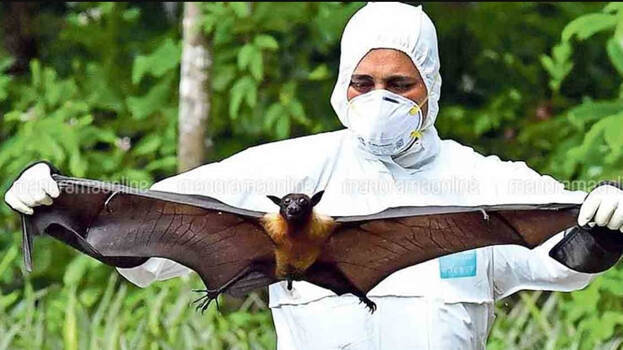

THIRUVANANTHAPURAM: Extensive testing will be done to figure out Nipah virus transmission from bats to humans. The presence of Nipah antibody was detected in six bats in Malappuram Pandikkad, where the disease was largely reported. With this, it was certain that the virus came from a bat but the route taken to reach humans remains an enigma.
All the Nipah viruses reported in Kerala are of Bangladeshi variants. It is highly doubted that the virus might have got into humans through toddy or fruits. More samples of fruits and toddy from these parts of Malappuram will be collected and then tested to clear the air over the ambiguity. Meanwhile, in Bangladesh, there are suspicions that the virus was transmitted through date palm sap, a liquid extracted from palm trees.
Palm sap in Bangladesh is similar to how Kerala treats toddy. It is against this background that the possibility of toddy in Kerala is being examined. The toddy-tappers often keep the pitcher upside down on coconut trees to prevent bats from entering.
The examination in this regard will be conducted at the National Institute of Virology (NIV), Pune. The chief aim is to unearth the transmission route and ward off further tensions regarding the disease. Samples of rambutan, banana and mango were tested at the NIV lab in Kozhikode, but the virus presence was not detected.
The Malaysian variant of Nipah is transmitted to humans through pigs. Bat excrement can infect pigs and can easily spread to humans working in pig farms. However, the Malaysian variant has not been found in Kerala yet.